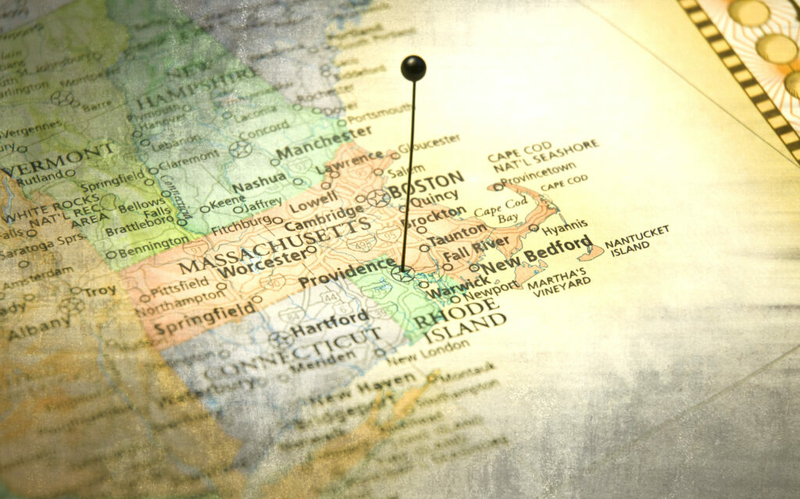R.I. loses its size distinction if D.C. becomes a state. Here’s what we could gain.

The citizens of Washington, D.C. are renewing a push to become America’s 51st state in an effort to secure Congressional representation. They have the support of some Rhode Island lawmakers. If they succeed, they will also become the smallest state, eclipsing one of Rhode Island’s treasured distinctions.
Countless songs, slogans and advertising campaigns emphasize our state’s small size. Big bands and crooners have been singing “Poor Little Rhode Island” since 1944, which includes the lyric “you’re just a little bitty Rhode Island.” We are pleased to be small, and adopt this gentle teasing as a matter of pride. We call ourselves Little Rhody.
Our size has had considerable advantages since the beginning. An unusual level of local rule granted by our 1663 charter — and never being more than a day’s ride or row from anywhere within our borders — sure can expedite the practice of active, local democracy. We have, still, remarkable access to our elected officials and can often get them on the phone with a minimum of fuss. Or run into them at the grocery store. 
But what we have not done with our tiny size is leverage it, and our access to each other, to create economic or administrative advantages. We were founded by people who did not want to go along with the crowd and preferred, when there was conflict, to simply walk away from the group and go it alone. A schism from Providence caused the formation of Portsmouth and Warwick in the 1630s, and a schism within the Portsmouth group led to the founding of Newport in 1639. The legacy of this independent streak — a statue of a gold man with a spear in one hand and the head of an anchor in the other — is visible on the pinnacle of our State House.
Though we are small, our non-conformism has led to distinct cultural variations within our state. The rural north and west of the state have a different flavor than the urban center, or the resort south, and these differences are long-standing. In 1896, the Boston Globe reported on a trip to rural Rhode Island to report on a belief in vampires. The article describes a trip down a long country road past Exeter to Sodom, Rhode Island, a place “you won’t know when you see it.” At this same moment in time, Providence was an urban hub of industrial and cultural activity and great wealth. The Providence-Newport divide is almost 400 years old and running. Today, when many lifelong Newporters would not drive the 45 minutes to Providence without a subpoena or a health emergency, and some Providence residents seem to have trouble remembering that Newport is part of the state at all, we cherish our differences and do what we can to maintain them.
The legacy of our non-conformist, independent heritage has led to expensive, often dysfunctional arrangements.
This independent streak, and celebration of our differences is definitely part of Rhode Island’s charm. But it has contributed to a decentralized approach to many governmental functions, and the results are not always so charming. We have 34 school districts for a bit over 130,000 students. The City of Los Angeles has one, for over 500,00 students. We have 39 municipalities and 44 fire districts, which means some towns have more than one. The legacy of our non-conformist, independent heritage has led to expensive, often dysfunctional arrangements. These divisions are perhaps not necessary; as different as we are, we are still very, very small.
We have tried on more than one occasion to regionalize, or centralize, but these efforts tend to fail. An effort to regionalize the Aquidneck Island high schools — just the high schools — to provide economies of scale and a broader menu of offerings to students, something that has been discussed for over 20 years, recently went down in flames. Again.
We cannot change what we do not recognize, and perhaps it is time for Rhode Islanders to understand that our centuries-old disinclination to act in concert has some disadvantages. There have been opportunities to come together in the past, and we do have another on the way. The 250th anniversary of the American Revolution is in 2026, and the celebration of various milestones are already underway nationally. Rhode Island has as much revolutionary history as any state, and it is not as well-known as it could be — in part, because we do not get together to tell our full, statewide story. Let’s do that now, shall we? Maybe it will lead to bigger things.








